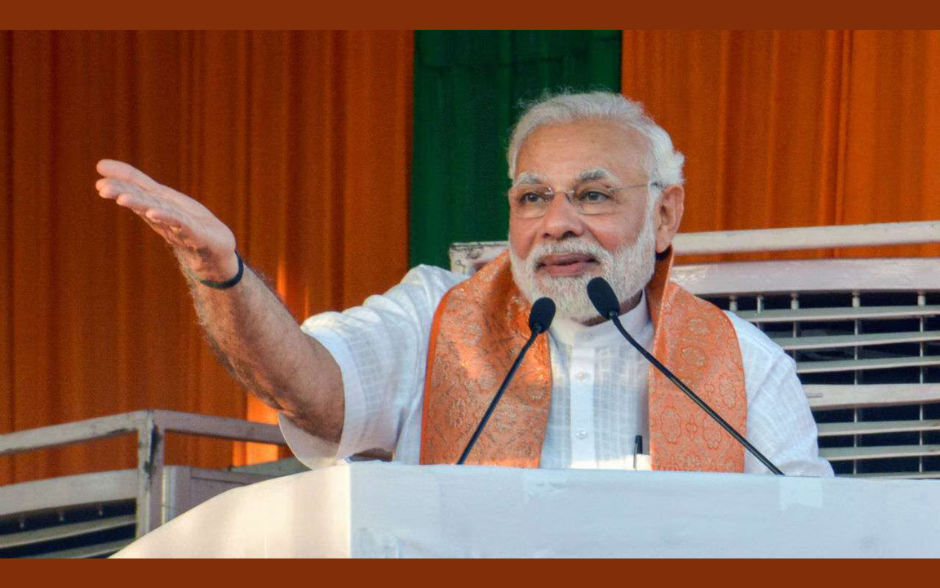
Prime Minister Modi’s Communal Rhetoric Reflects Desperation Ahead of Elections
Anti-Incumbency Grips the Hindi Belt
In the wake of the first phase of polling for 102 seats, signs of anti-incumbency against the government are unmistakable, especially in the Hindi belt. Issues such as price rise, unemployment, and corruption have left voters disgruntled with the government’s handling. Prime Minister Narendra Modi’s recent communal remarks in Banswara, Rajasthan, suggest a sense of urgency to counter the growing dissatisfaction among Hindu voters.
Communal Speech Raises Eyebrows
Modi’s speech, where he alleged that the Congress favored Muslims over Hindus in resource distribution, has drawn sharp criticism. Congress president Mallikarjun Kharge condemned Modi’s remarks as baseless and divisive, accusing him of resorting to lies for political gain.
Calculative Move or Desperation?
While Modi is known for strategic communication, his overtly communal rhetoric raises questions about the BJP’s confidence in the upcoming elections. Despite boasting about India’s economic growth, Modi’s focus on religious polarization hints at underlying concerns within the party regarding voter sentiment.
Shift in Voter Enthusiasm
Low voter turnout in the first phase of polling suggests a lack of enthusiasm among voters, challenging the BJP’s expectations of a sweeping victory. This apathy among voters poses a significant hurdle for the Modi government’s bid for a third term in power.
Targeting Hindu Voters
Recognizing the BJP’s limited appeal among Muslim voters, Modi’s speech appears aimed at rallying Hindu voters to the party’s cause. With Rahul Gandhi’s recent outreach efforts attracting Muslim voters to the Congress, the BJP is increasingly reliant on Hindu voter support.
Polarization Strategy Amidst Economic Challenges
As economic challenges such as inflation, unemployment, and corruption persist, the BJP’s resort to religious polarization reflects a shift in its electoral strategy. Dissatisfaction with the Modi government’s performance on economic issues has prompted a reliance on communal rhetoric to sway voters.
Muslim Community’s Strategic Silence
Despite provocations, the Muslim community’s strategic restraint has denied the BJP opportunities for polarization through violence. Recognizing the detrimental impact of violent responses, Muslims have opted for strategic silence, thwarting the BJP’s divisive agenda.
Modi’s Electoral Dilemma
With the electorate demanding answers on economic issues rather than religious rhetoric, Modi faces a daunting challenge in reshaping the national mood. As the nation’s mood evolves, Modi must navigate beyond the Hindu-Muslim binary to regain voter confidence and secure electoral victory.
Frequently Asked Questions about Modi’s Communal Speech
1. What was the context of Prime Minister Modi’s speech in Banswara, Rajasthan?
- Prime Minister Modi made remarks alleging favoritism towards Muslims over Hindus in resource distribution during an election rally in Banswara, Rajasthan.
2. Why has Modi’s speech sparked controversy?
- Modi’s remarks have drawn criticism for their divisive and communal nature, with opposition leaders accusing him of spreading falsehoods for political gain.
3. What does the low voter turnout in the first phase of polling suggest?
- The low voter turnout indicates a lack of enthusiasm among voters, posing a challenge to the BJP’s hopes of securing a sweeping victory in the upcoming elections.
4. Why is Modi targeting Hindu voters in his speech?
- With limited appeal among Muslim voters and increased efforts by the Congress to attract them, Modi’s speech appears aimed at rallying Hindu voters to the BJP’s cause.
5. How does Modi’s focus on religious polarization relate to economic challenges?
- Despite economic challenges such as inflation and unemployment, Modi’s reliance on communal rhetoric reflects a shift in the BJP’s electoral strategy to sway voters amidst dissatisfaction with its economic performance.
6. Why is the Muslim community’s response significant?
- The strategic silence of the Muslim community has thwarted the BJP’s attempts to polarize through violence, denying the party opportunities for divisive tactics.
7. What electoral dilemma does Modi face?
- Modi must navigate beyond the Hindu-Muslim binary to address voters’ concerns about economic issues and regain confidence ahead of the elections.
In conclusion, Prime Minister Modi’s recent communal speech in Banswara, Rajasthan, highlights the BJP’s strategic shift towards religious polarization amidst growing dissatisfaction with its economic performance. The controversy surrounding Modi’s remarks underscores the challenges the BJP faces in securing electoral victory, particularly in light of low voter turnout and shifting voter sentiments. As the nation prepares for upcoming elections, Modi’s electoral dilemma lies in balancing communal rhetoric with addressing pressing economic concerns to regain voter confidence and secure electoral success.

